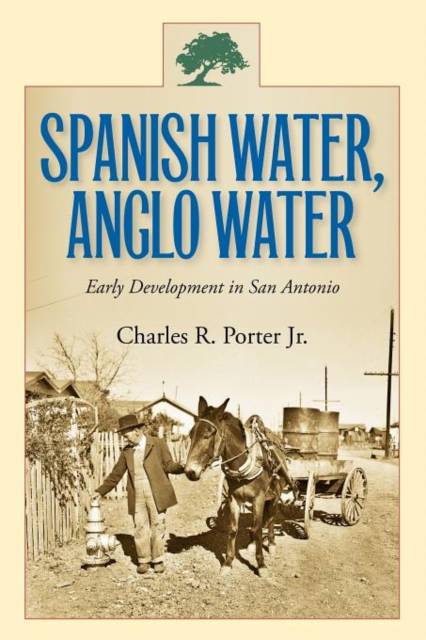
- Afhalen na 1 uur in een winkel met voorraad
- Gratis thuislevering in België vanaf € 30
- Ruim aanbod met 7 miljoen producten
- Afhalen na 1 uur in een winkel met voorraad
- Gratis thuislevering in België vanaf € 30
- Ruim aanbod met 7 miljoen producten
Zoeken
Omschrijving
In 1718, the Spanish settled San Antonio, partly because of its prolific and breathtaking springs-at that time, one of the largest natural spring systems in the known world. The abundance of fresh water, coupled with the Spanish colonial legal concept that water was to be equitably shared by all settlers, led to the building of the system of acequias (canals or ditches) within the settlement. The system is one of the earliest and perhaps most extensive municipal water systems in North America. This book offers a meticulous chronicling of the origins and often-contentious development of water rights in San Antonio from its Spanish settlement through the beginning of the twentieth century. CHARLES R. PORTER JR. is a real estate and construction expert, Texas Real Estate Commission instructor, and adjunct professor of history at St. Edward's University in Austin, Texas.
Specificaties
Betrokkenen
- Auteur(s):
- Uitgeverij:
Inhoud
- Aantal bladzijden:
- 196
- Taal:
- Engels
- Reeks:
Eigenschappen
- Productcode (EAN):
- 9781603444682
- Verschijningsdatum:
- 1/09/2009
- Uitvoering:
- Paperback
- Formaat:
- Trade paperback (VS)
- Afmetingen:
- 152 mm x 226 mm
- Gewicht:
- 272 g

Alleen bij Standaard Boekhandel
+ 59 punten op je klantenkaart van Standaard Boekhandel
Beoordelingen
We publiceren alleen reviews die voldoen aan de voorwaarden voor reviews. Bekijk onze voorwaarden voor reviews.







